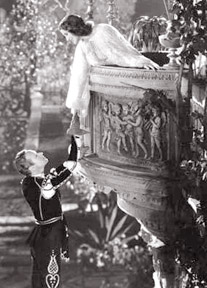Interpreting Romeo and Juliet
K S Sivakumaran
|

Oscar J Campbell |
Literature lends itself to different interpretations. If you take
Shakespeare’s enjoyable tragic-comedy for instance, critics have seen
this play differently over the ages. Students studying this play for
examination purposes only do not feel much of the tragic element in the
play nor the accidental mistakes made by the Friar as the correct action
or even critical of the rash action taken by the protagonists. However
literary critics continue to revere the play as a study of youth and
foolishness on the part of the antagonistic clans of the Elizabethan
period.
What I propose to do in this week’s column is to interpret my
understanding of the play substantiated by the considered views of both
past and present critics. This will help the students, I believe, to
know how the critics approached the play chronologically. Alfred
Rothschild wrote that ‘by text we mean the words the characters actually
speak. While it is true that this text, written in Elizabethan English,
contains words and phrases no longer in common usage, allusions to
matters and events no longer easily recognised, and various other
obscurities, thee was never any doubt about one rule; the basic text
should not be violated’
|

The balcony scene from 'Romeo and Juliet' |
The reign of Elizabeth 1 in England gave an impetus for the
playwright to write such a teenage play making it interesting to the
viewers then to enjoy a romantic comedy but he twisted into a tragedy
making the passionate lovers to end their lives rather without thinking
and thereby showing their immaturity. The irony of the play is that only
at the tragic end do the hostile parents of the lovers unite ending
their feud. In other words in modern context it is a simple play with a
psychological undertone.
The play can be enjoyed at two levels: as a text and as a play that
yields to theatrical presentation. We shall concentrate on the text.
Look at what Oscar J Campbell introduces the play: “Romeo and Juliet
dramatizes the world’s most famous tale of idealistic first love – love
at all costs, love faithful unto death. Many critics, charmed by the
lyrical manner and tone of the play, describe it not as a tragedy of
love but a love’s hymn of triumph. Romeo vows he will bury Juliet in a
“triumphant grave”.
What is the moral theme of the action in the play? It is nothing but
the reconciliation of the two families –the Montague and the Capulet –
at the end of the tragedy over the dead bodies of their children –Romeo
and Juliet- Although the play ends in a kind of comedy, it is basically
a tragedy that occurred owing to the rashness of the teenage lovers who
were star-crossed. That is why we may call the play a tragic-comedy.
This well – explained by Campbell in this way: fate, or fortune as
Shakespeare most often calls it, proves to be a much more dangerous foe
to the pair than the feud. Fortune plays almost as sinister a role. Fear
or fate fills the speeches of the lovers with foreboding in phrases like
those uttered by Romeo while on his way to the Capulet dance.
|

Rama and Sita in 'Ramayana' |
Although Romeo might have had a crush on another girl earlier he
really became passionate in love with Juliet and the latter was too
naive to understand what ’love’ was at the beginning falls deeply in
love with Romeo. These two faced an uncomprehending and hostile world.
As one critic pointed out: “Shakespeare chooses a flash of lightening in
the darkness of night as the most striking symbol of the love" of the
protagonists.
Let me quote a brilliant observation by Campbell that I accept:
“Shakespeare transformed the atmosphere of the lurid tale into a
masterpiece of fear and pity.
His methods are the ways of the genius, which to describe is not to
explain. But we can readily see that they have deepened the human
significance of a story of violence and horror.”
Shakespeare’s art lies in the fact that he succeeds in making us feel
complete sympathy for the lovers. However the present day youngsters
resort to straight action of physical contact than to go through the
process of genuine love step by step. So as in 'Romeo and Juliet', the
famous balcony scenes (as depicted in the Ramayana between Rama and Sita)
or in the Tamil film 'Ambikaapathy' (between Ambikapathy and Amaravathy)
may not be enjoyed by the youth of present day as we did enjoy even as
teenagers.
However, the lyrical poetic lines of the Master are almost musical.
As the critic puts it, ‘ The ecstatic antiphonal of the lovers in the
balcony scene, the touching expression of their grief and longings they
part after their wedding night, no less than Juliet’s terrified
anticipation of her awakening in the tomb, are all intensified by the
music which rings through the lines.”
He adds: When Romeo and Juliet speak from the depths of their hearts,
they fall into the idiom of supremely natural songs and lyrics which
made Elizabethan England a fountain of spontaneous music.
What Shakespeare says through the mouth of the nurse in the play
might delight most of the teenagers, I believe.
According to her love is merely a form of physical delight in which
feelings of romance, even of loyalty, is an intrusion. However
Shakespeare pre-warns that a passion-driven youth like Romeo inevitably
meets disaster.
One may conclude that Romeo and Juliet has elements of tragedy,
namely, fate, evil in society and passion in the individual.
[email protected] |



